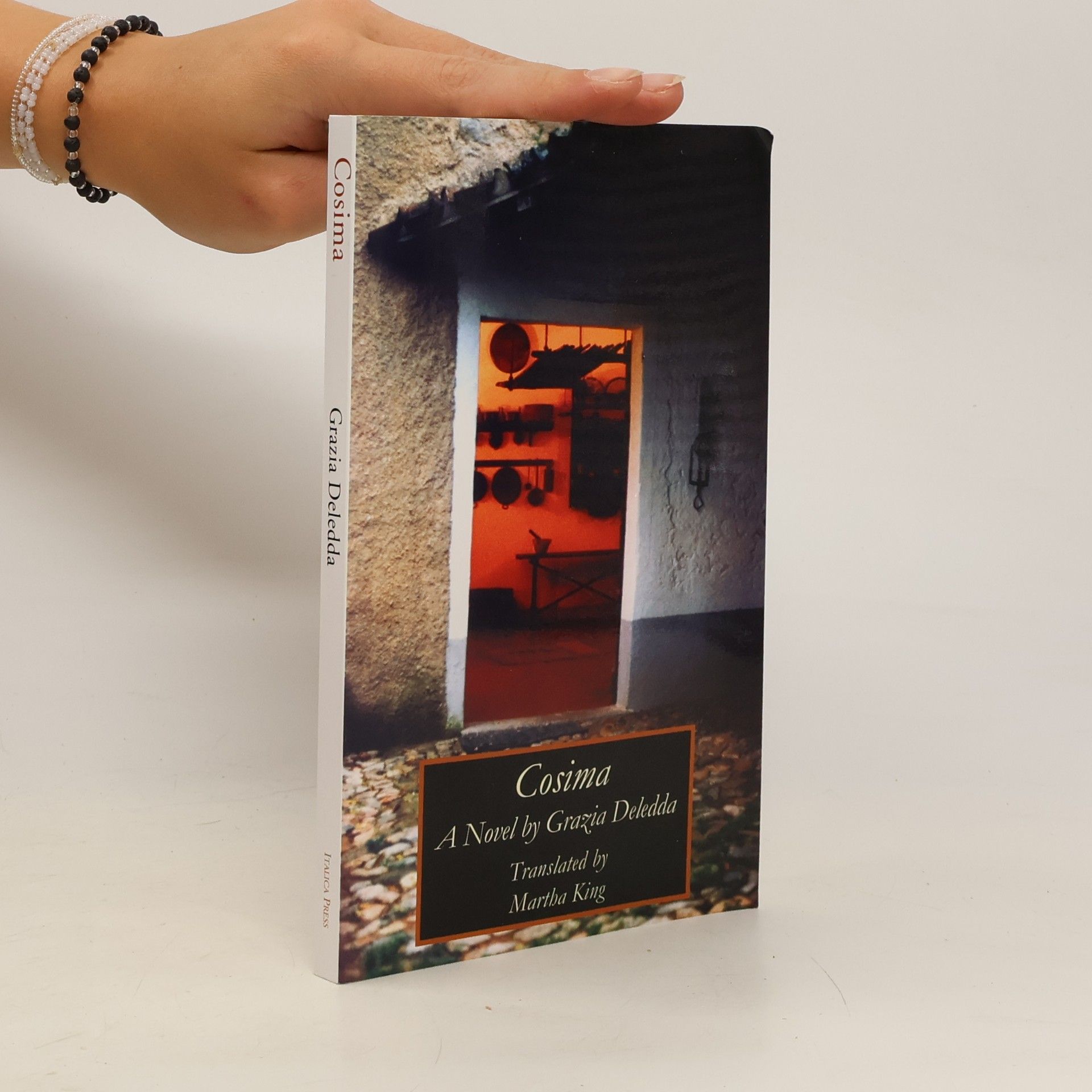Nostalgia
- 332 pages
- 12 hours of reading
Grazia Deledda is celebrated for her idealistically inspired writings, which with plastic clarity depict the life of her native island and deal with human problems in general with depth and sympathy. Her novels forge a strong connection between places and people, feelings and environment. The harsh Sardinian landscape is not merely rendered through regional veristic schemes but is relived through myth. Her distinctive voice offers profound insights into the complexities of human existence.







Grazia Deledda, Nobelpreisträgerin für Literatur, wurde 1871 auf Sardinien geboren und starb 1936. Ihre letzte Erzählung „Die Kirche der Einsamkeit“ handelt von Maria, die in Aroldo verliebt ist, jedoch aufgrund ihrer unheilbaren Krankheit glaubt, ein einsames Leben führen zu müssen. Deledda thematisiert das gesellschaftliche Schweigen über solche Krankheiten.
Roman | Die vielleicht schönste Erzählung der sardischen Literaturnobelpreisträgerin
Eine junge sardische Frau begibt sich mit ihrem Mann auf Hochzeitsreise an einen stürmischen Ort am Meer. Noch bevor die Braut das alte Städtchen in der wilden Berggegend überhaupt kennenlernen kann, begegnet sie dem »schwarzen Mann«, einem schluchzenden Geigenspieler, und erkennt in ihm Gabriele wieder, den Virtuosen, in den sie sich vor Jahren verliebt hatte, und der damals spurlos verschwunden war. Die Begegnung stürzt die Erzählerin in größte Seelenqualen. Denn obwohl sie willens ist, mit ihrem Ehemann, den sie vergöttert und der in seiner patriarchalen Rolle fest verankert ist, die gemeinsame ewige Glückseligkeit anzustreben, regt sich Trotz und Widerstand in ihr. Sie will ihre alte Liebe nicht begraben, denn diese romantische Fantasie ist so sehr sie selbst, dass sie – die Liebe zu Grabe tragend – sich selbst begraben würde. In dem zeitvergessenen Ort der archaischen Provinz Sardiniens nimmt das innere Drama der Protagonistin Gestalt an. Als es am Abend eines Dorffestes endlich zur Begegnung zwischen ihr und Gabriele kommt, stellt die junge Frau mit Entsetzen fest, dass er gegen sie einen heftigen, alten Groll hegt … Der vielleicht schönste Roman der hierzulande kaum bekannten sardischen Literaturnobelpreisträgerin.
Il titolo rimanda al rapporto tra il vecchio Ulpiano Melis, ricco pastore, e i fanciulli che in realtà sono degli adolescenti: la nipote Francesca di 15 anni e il servo pastore Luca di 16. La vicenda si svolge nella Sardegna del ’15-’18.La storia è dipanata in un anno e mezzo in cui Ulpiano Melis e la sua famiglia affrontano l’alternarsi di sentimenti quali il rancore, l’odio, l’amore e la passione. Un vero e proprio repertorio di tematiche deleddiane: la colpa e l’espiazione; il fatalismo; la magia e le superstizioni. È dunque un romanzo della maturità, ma ancora sardissimo negli intenti e nell’intreccio.
Set against an urban backdrop, Grazia Deledda's narrative explores the complexities of human emotions, delving into themes of love, ambition, and the desire for self-importance. With a modern and experimental writing style, she reveals the deep-seated struggles and aspirations that drive individuals, moving beyond her traditional Sardinian roots to capture the essence of urban life and its inherent challenges.
A native of Sardinia, Grazia Deledda's novels are mostly set in the rugged hills around her home town of Nuoro. Her characters reflect the difficult lives of people still constrained by ancient customs and practices. Her voice is powerful, her tone often sombre. But her wide-ranging talent had a sunnier side, revealed in many of her later works. The Christmas Present, first published in 1930, brings together a collection of folk tales, children's stories and personal reminiscences that portray with humour and affection the lighter side of Sardinian life. This is a book that will charm and delight, opening a window on to the Sardinia of old and the formative influences on a Nobel laureate.
The ancient traditions of Sardinia feature heavily in this early collection. The stories collected in The Queen of Darkness, published in 1902 shortly after Deledda's marriage and move to Rome, reflect her transformation from little-known regional writer to an increasingly fêted and successful mainstream author. The two miniature psycho-dramas that open the collection are followed by stories of Sardinian life in the remote hills around her home town of Nuoro. The stark but beautiful countryside is a backdrop to the passions, misadventures and injustices which shape the lives of its rugged but all too human inhabitants.
Ein Roman aus Sardinien
Grazia Deledda (1871-1936) war eine italienische Schriftstellerin und Nobelpreisträgerin der Literatur des Jahres 1926. Sie zählte zu den bedeutendsten Autorinnen des Naturalismus innerhalb der italienischen Literatur. In ihren Werken schildert sie das harte Leben der Sarden. Deleddas Bücher sind Schicksalsromane, die oft Frauen als zentrale Figuren haben, die in Konflikten um Ehre, Glauben und gesellschaftliche Vorurteile zerrieben werden. Das Nobelpreiskomitee verlieh ihr den Preis „für ihre von Idealismus getragenen Werke, die mit Anschaulichkeit und Klarheit das Leben auf ihrer heimatlichen Insel schildern und allgemein menschliche Probleme mit Tiefe und Wärme behandeln.“